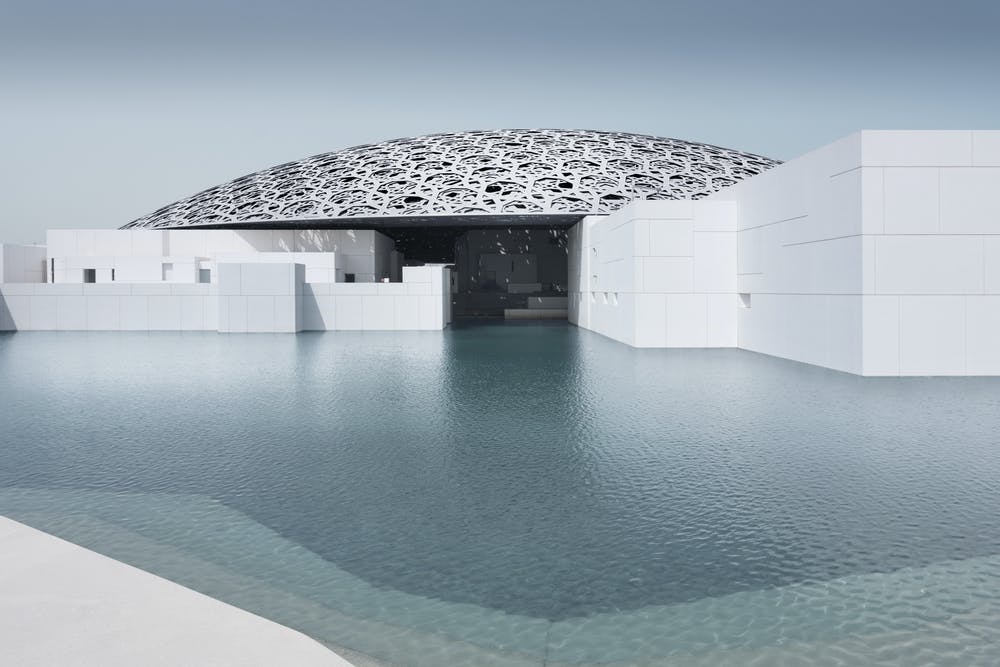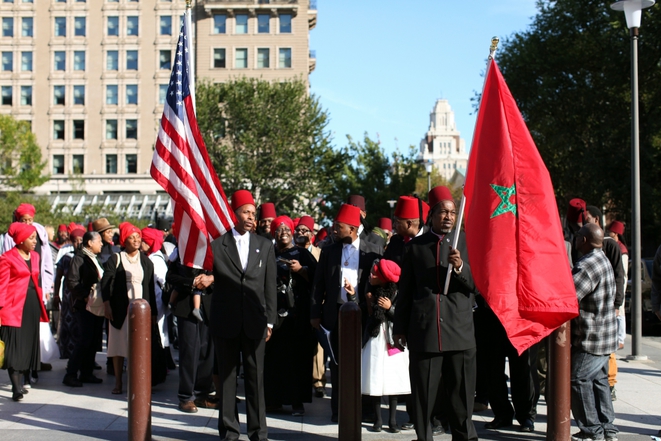In Abu Dhabi the Louvre has led the way in pioneering digital offerings, creating a diverse range of ways for audiences to engage with the museum’s collections. These offerings include digital tours and talks by artists and curators.
The museum also created a podcast that uses a sci-fi narrative to explore its futuristic architecture. In May, the museum partnered with streaming service Anghami to launch a series of playlists based on its collections. The playlists contain 20-30 songs each and have been crafted to reflect the era and region of the art presented in the associated exhibition.
A cultural and artistic hub, Abu Dhabi has a plethora of galleries and art institutions and many have joined Abu Dhabi Louvre in offering online activities, including workshops and film screenings. As previously reported by Arabia Policy, the Sharjah Art Foundation is screening works by female Arab filmmakers throughout June for a virtual audience.
In Morocco, the Moroccan National Foundation of Museums has mobilized to offer online virtual visits with accompanying explanatory texts to some of the country’s most famous museums. The virtual visits commenced with the Mohammed VI Museum of Modern and Contemporary Art’s “In Front of Picasso” collection.
Beyond museums
The museums in Morocco are joined by the national library, which is offering free online access to all its e-books, and the Moroccan Philharmonic Orchestra (OPM), which is streaming concerts on social media, in offering online access to culture and the arts.
In Egypt, the country’s Ministry of Tourism and Antiquities has launched a series of online guided tours of archaeological sites, in addition to museums. The initiative has the dual purpose of promoting tourism to foreigners and educating Egyptians on their country’s rich history.
The tours, which are available through the ministry’s social media, include the Menna Tomb in Theban Necropolis and the tomb of Queen Meresankh III. The latter features some of the best preserved examples of burial art. Tours of more contemporary sites, including the Red Monastery, the 14th-century Mosque-Madrassa, and the Ben Ezra Synagogue, are also online.
Socially distant cultural events
In Saudi Arabia, the King Abdulaziz Centre for World Culture made sure residents were able to experience the joy of Eid despite the lockdowns through a series of lockdown parades.
Over 100,000 people enjoyed the parades, which featured traditional Saudi songs and dances such as Ardha, Sahrqi music, folk songs related to fishing and pearl diving, and Eid songs, from their balconies or windows.
As coronavirus lockdowns continue across the region, the ability to explore art and culture online or from a distance is a welcome relief for many.





